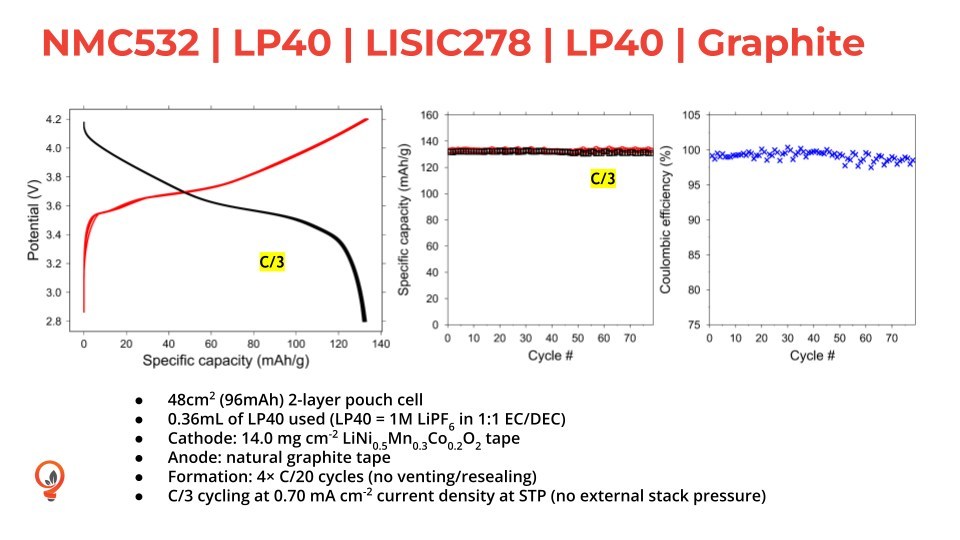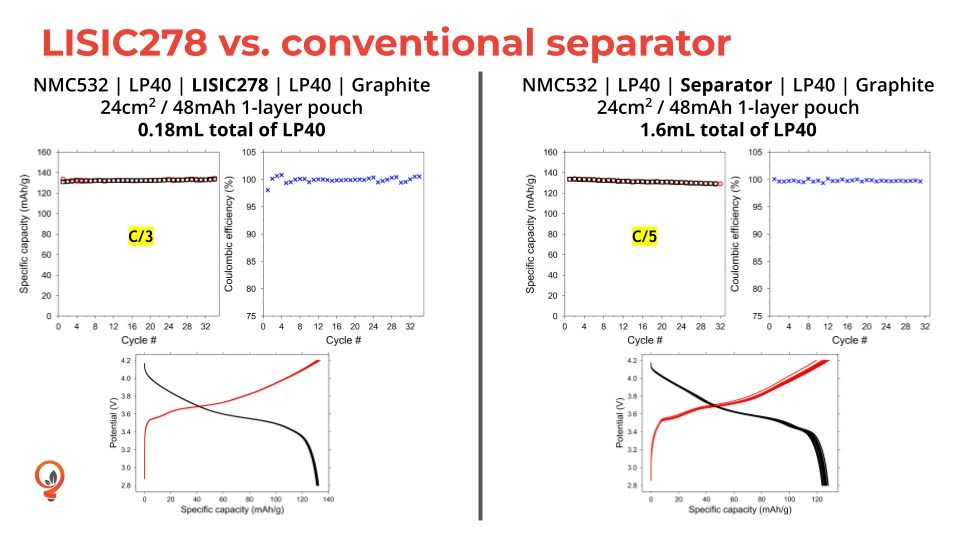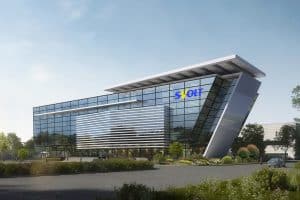Mark Cuban-backed Natrion has unveiled its latest developments in solid-state battery manufacturing with the new LISIC278 separator in a traditional pouch cell. The separator allows for a higher thermal resistance than other EV batteries, decreasing the risk of fires and combustion. Additionally, the cell showed a 40 percent increase in the charge rate compared to a conventional battery with the same capacity.
Natrion’s LISIC278 material utilizes a Lithium Solid Ionic Composite (LISIC) electrolyte that mimics the performance and specs of a standard polyolefin separator, which sits between the anode and cathode. The purpose of the separator is to prevent short circuits by keeping the electrodes apart while also allowing ionic charges to flow through with the necessary passage of currents in a cell. The LISIC cell can utilize significantly less of the electrolyte liquid by delivering high ion transport capability at ambient conditions. This keeps the cells’ thermal resistance above 200° Celsius (392 F) without having any porosity.
The LISIC278 separator’s ability to remain stable at high temperatures nearly eliminates the risk of fire, while it also exhibits a reduced ability for a thermal event altogether.
CEO and Co-Founder Alex Kosyakov said that reducing flammable liquid electrolytes was a main focus because reducing the perception that battery cells will catch on fire is a key to growing mass EV adoption:
“Reducing our reliance on flammable liquids in EV batteries is key to reducing fire risk and ultimately making mass EV adoption more viable. So the fact that this data shows we can produce battery cells that are just as efficient with only a small fraction of that liquid is a huge win.”

In addition to the LISIC278 cells’ stability, it also showed a 40 percent increase in charge rate, taking just 3 hours to charge as opposed to 5 hours for a conventional cell with the same capacity. Natrion utilized a standard pouch containing NMC532 cathode, LP40 liquid electrolyte, and a natural graphite anode with a state-of-the-art separator for its experiments. This was compared to the Natrion pouch, which was identical but utilized the LISIC279 separator instead of a conventional design.

The cell with the LISIC279 separator also displayed a high initial coulombic efficiency. Conventional lithium-ion cells “typically” have less energy available than they are charged with when used the first few times. Natrion cells did not display this issue and “exhibited higher initial coulombic efficiencies and resultantly improved capacity retention at higher C-rates,” the company said.
Dr. Jon Tuck, an expert in energy storage for Silent Koala, said using less electrolyte liquid while maintaining a high initial coulombic rate is difficult, especially at the capacity and C-rate threshold given here. “These results are highly promising and show a versatility of use for LISIC that we have yet to see from other solid-state electrolyte materials. It signals the potential of Natrion’s materials to really advance the industry and the technological feats being developed,” Dr. Tuck added.
Natrion is based in Binghamton, New York, and has operations in Champaign, Illinois.
Solid-state batteries utilize a solid material to allow energy to flow from the cathode to the anode, instead of traditional lithium-ion cells, which utilize a liquid electrolyte solution. EV makers have not been able to switch to solid-state technology due to its complex manufacturing processes. Additionally, researchers have not been able to find ideal solutions for the material it would utilize in the batteries, and this continues to be a severe bottleneck of solid-state development.





